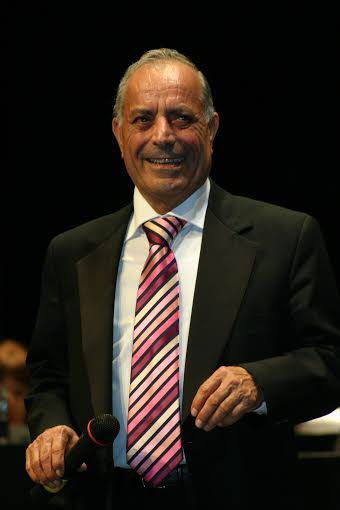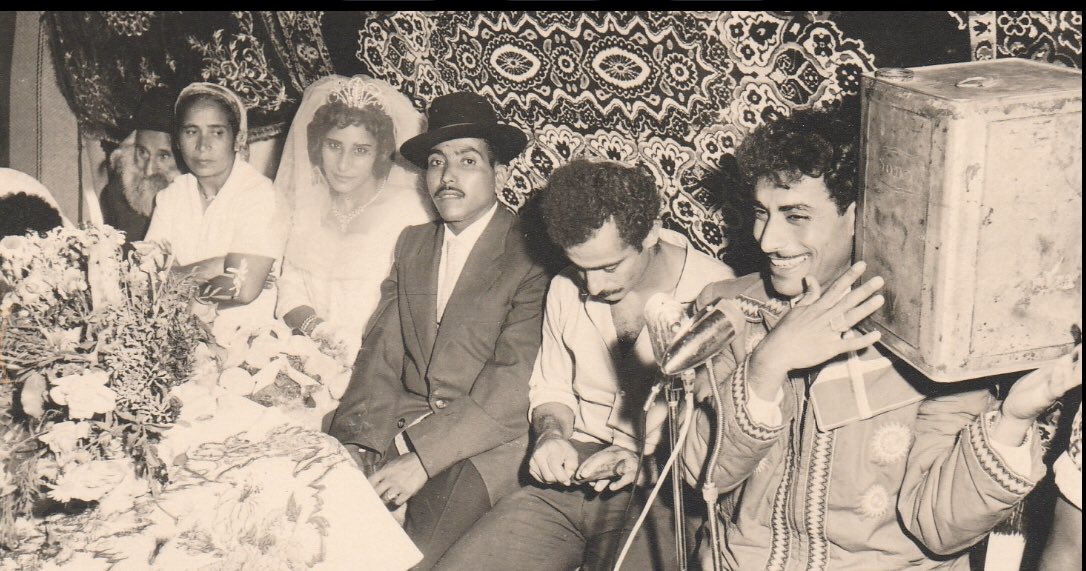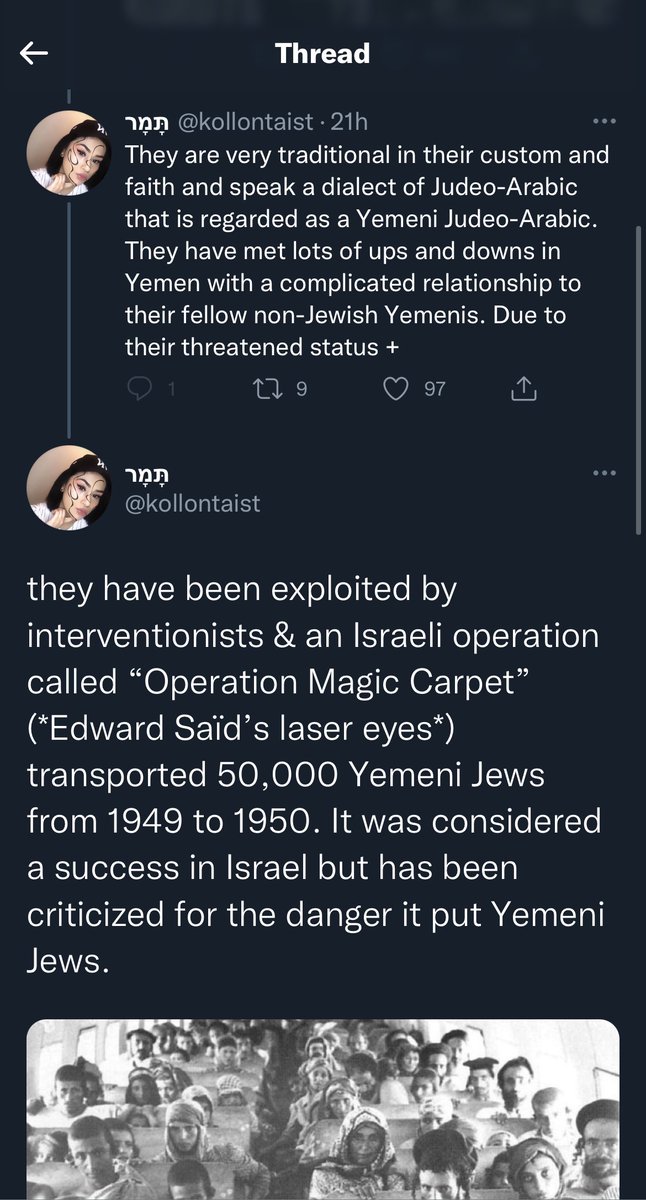
THREAD:
Aharon Amram is an Israeli Yemeni Jew who became a singer, composer, and researcher of Yemeni Jewish traditions. He was born in Sana’a in 1939 and came to Israel during Operation Magic Carpet in 1950.
Aharon Amram is an Israeli Yemeni Jew who became a singer, composer, and researcher of Yemeni Jewish traditions. He was born in Sana’a in 1939 and came to Israel during Operation Magic Carpet in 1950.

In school, his inclination for music was noticed. When he was fourteen he participated as a regular guest on Sa'adia Damari's radio show “Kol Yisrael Le'oley Teiman" (the voice of Israel for the immigrants of Yemen). 



As part of the show he read weekly Torah portions, recited Haftarahs, and sang songs of Shalom Shabazi. Following this he received a special scholarship for music studies from, eventual speaker of the Knesset, Yisrael Yeshayahu.
When one of his teachers found out that Amram was practicing Yemeni singing while out of school and singing at weddings and Bar-Mitzvahs, she advised him to choose between Yemeni and classical singing because of the different vocal techniques. He chose Yemeni singing. 



He took this as a calling and afterwards started focusing on reviving, preserving, and continuing the Yemeni traditions. He started performing not just locally, but on worldwide tours with the Hapa’amonim group as a soloist for 7 years in Belgium, Holland, Spain, and France.
At that time Amram also performed abroad at concerts organized by the Israeli foreign ministry. He performed with such acclaimed Israeli artists as Moshe Wilensky, Ilana Robina, Shoshana Damari and Yehoram Gaon, and appeared on French and Norweigan TV.
After the Yom Kippur war, and later after the Lebanon war, Yemeni widows turned to Amram requesting him to record Yemeni synagogue tunes because their sons did not have fathers to teach them these traditions. He started this project at the beginning of the 90’s.
He recorded Ashmorot, prayers of Rosh Hashana and Yom Kippur, and started to research dozens of Tajs/Tijan (Yemenite manuscripts of the Torah) in Israel, London, and New York, in order to affirm that the tradition he had studied and performed was exact. 







He researched to find the correct versions, and finally published and recorded “Vezot Hatorah” which was certified by rabbis. The recorded set comprised of 60 CDs/cassettes and covered the entire Pentateuch. Originally he didn’t think it would sell, but to his surprise it did. 



Because of this success, Amram continued to record more Yemenite synagogue tunes. He recorded Kohelet, Megilat Ester, Tehilim, Shir Hashirim, the Hagadah, Shabbat tunes, and more. He also released all of the prayers of the year for Shabbat, weekdays, and festivities.
This unprecedented project was comprised of over 120 CDs/Tapes. He wound up influencing many singers including Rami Danokh, Ofra Haza, and Zohar Argov (who performed with Amram at the beginning of his own career).
He has been the recipient of many awards for his work, and is recognized as one of the main figures who worked to preserve Yemeni musical traditions.
Here you can find a playlist of all 150 chapters of Tehilim/Psalms performed by him:
Here you can find a playlist of all 150 chapters of Tehilim/Psalms performed by him:
• • •
Missing some Tweet in this thread? You can try to
force a refresh













